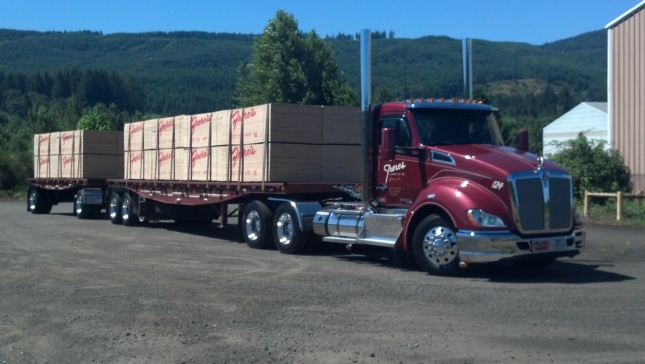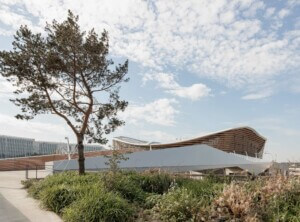Ten domestic plywood producers have jointly filed a lawsuit against several U.S. certification agencies for falsely labeling ineffective imported panels from South America. The group, known as the U.S. Structural Plywood Integrity Coalition, claims that structural panels produced in Brazil are being fraudulently certified and stamped upon entry to the U.S. even though they don’t meet the country’s minimum requirements for stiffness and deflection (the amount it sags when under horizontal load).
This isn’t a new issue: In June 2018, the nonprofit trade group APA – The Engineered Wood Association sent an advisory to all domestic manufacturers detailing the results of its own nearly year-long experiment testing the strength and structural integrity of imported panels from seven different Brazilian producers. Though all of their products were marked with the official stamp for Structural Plywood, known as U.S. Product Standard PS 1-09, they all failed to comply with federal regulations by large margins.
Tyler Freres, vice president of sales at Freres Lumber Co. in Lyons, Oregon, said he’s seen the stamp on countless poor-quality panels with his own eyes, many of which were tested independently at Clemson University under the coalition’s purview. He told AN that even though the APA advisory went out to all U.S.-based companies, pressure hadn’t mounted enough in the last year to force the industry’s top certification firms, PFS TECO of Wisconsin, Timber Products Inspection of Georgia, and the International Accreditation Service of California, to stop the fraudulent labeling.
“No one cared,” he said. Freres and the nine other plywood companies that make up the coalition are hoping to halt further shipments from Brazil and to educate U.S. contractors and homebuyers about the issue, which started in 2016 when both the U.S. dollar and housing market became stronger. At the same time, Brazil’s government began encouraging producers to ramp up their timber harvesting.
“As consumers, we all need to be aware of where our products come from,” said Freres. “Wood materials should be produced in the most environmentally [sustainable] places possible and it’s no secret that South America is having huge problems with deforestation and illegal harvesting.”
Freres is specifically talking about native North American wood species like loblolly pine, slash pine, and others that, for the last four years, have been planted and unnaturally grown in large-scale plantations on top of former rainforests. “The species grows so fast in Brazil,” he said, “that the density [of the wood fiber] isn’t sufficient for structural purposes.”
Over the last two years, the amount of imported structural panels has grown to a total of 25 percent of the U.S. market, resulting in an oversaturated supply. Naturally, producers in the Pacific Northwest all the way down to the South have had to lower the number of panels they make, as well as the price, to compete with international imports. One member of the coalition, Gray Skipper from the Alabama-based Scotch Plywood Company, said many manufacturers have felt Brazil’s push to get its products into the hands of U.S. consumers.
“We used to do a fair amount of business to Central and South Florida,” said Skipper. “It was about 20 percent of our product sales a decade ago. Now it’s something like one percent. Because of this, we’ve been focusing toward the Midwest and Northeastern markets but we’d like to be back in Southern Florida as soon as possible.”

According to the South Florida Sun Sentinel, much of the imported Brazilian plywood that’s been coming into the U.S. has landed in Florida. The material is used as roof and wall sheathing on residential and commercial buildings, and it’s extremely dangerous to build with in locations that are subject to extreme weather. The allegations laid out in the coalition’s lawsuit, a Lanham Act claim, suggest that a hurricane, high winds, or an earthquake could easily damage a home or cause deaths where these off-grade panels were used.
Skipper said that he’s heard stories from builders who’ve have had to turn down the pressure of their nail guns when using the Brazilian panels because they are so much thinner than the U.S. product. Despite this, these falsely labeled panels are still being bought, which is why the coalition is looking for upwards of $300 million in its lawsuit against the three certification agencies. Freres said the group will continue to complete additional deflection testing, as well as full-scale wind testing, through Clemson and Oregon State University up until December in order to further build out its case.
So far, two of the three firms have denied the allegations. In a September statement from Timber Products Inspection, the company’s president said it has “extreme confidence in our processes” and that “clients in Brazil and elsewhere who do not consistently meet the applicable industry standard do no remain as TP clients.”











